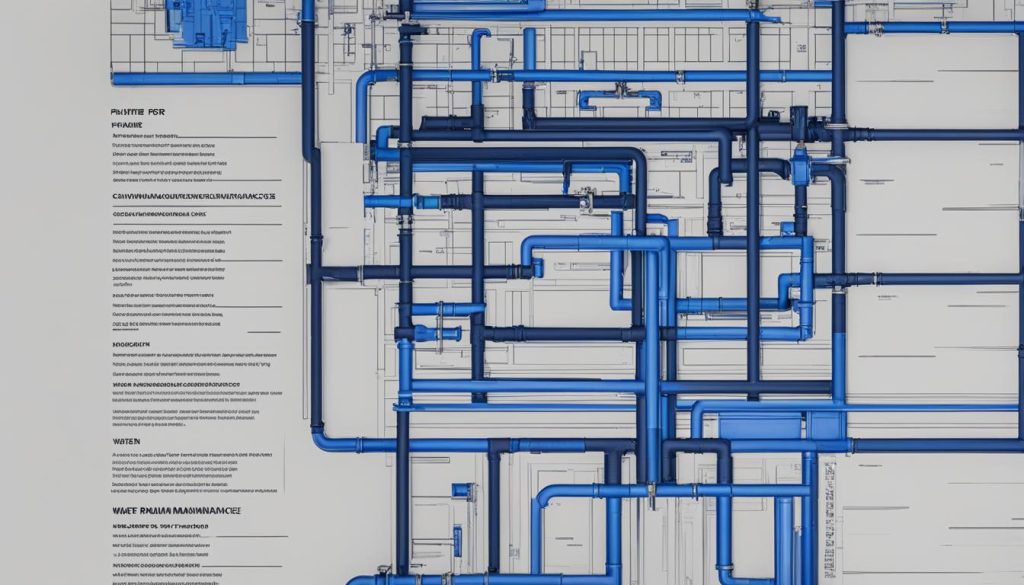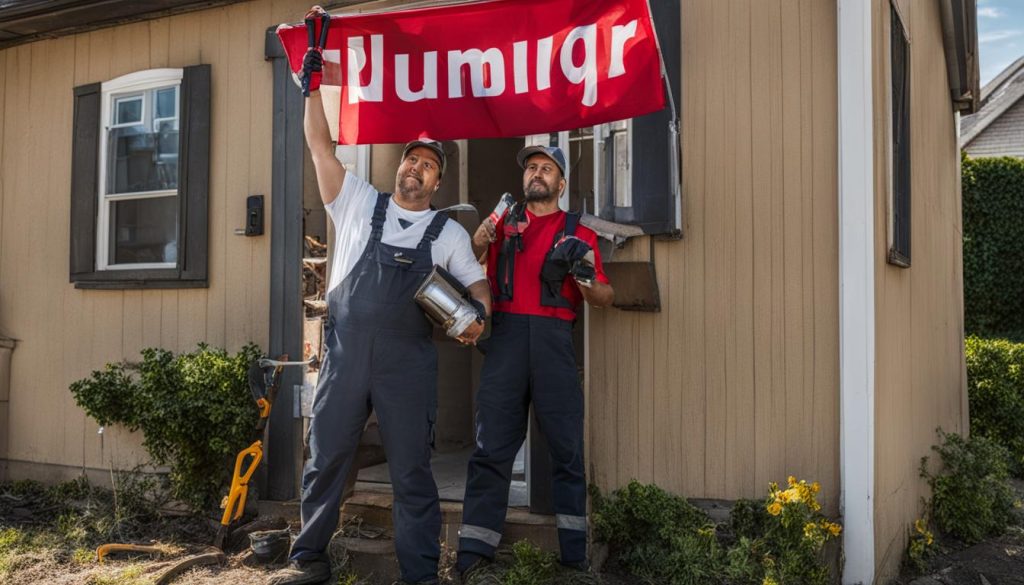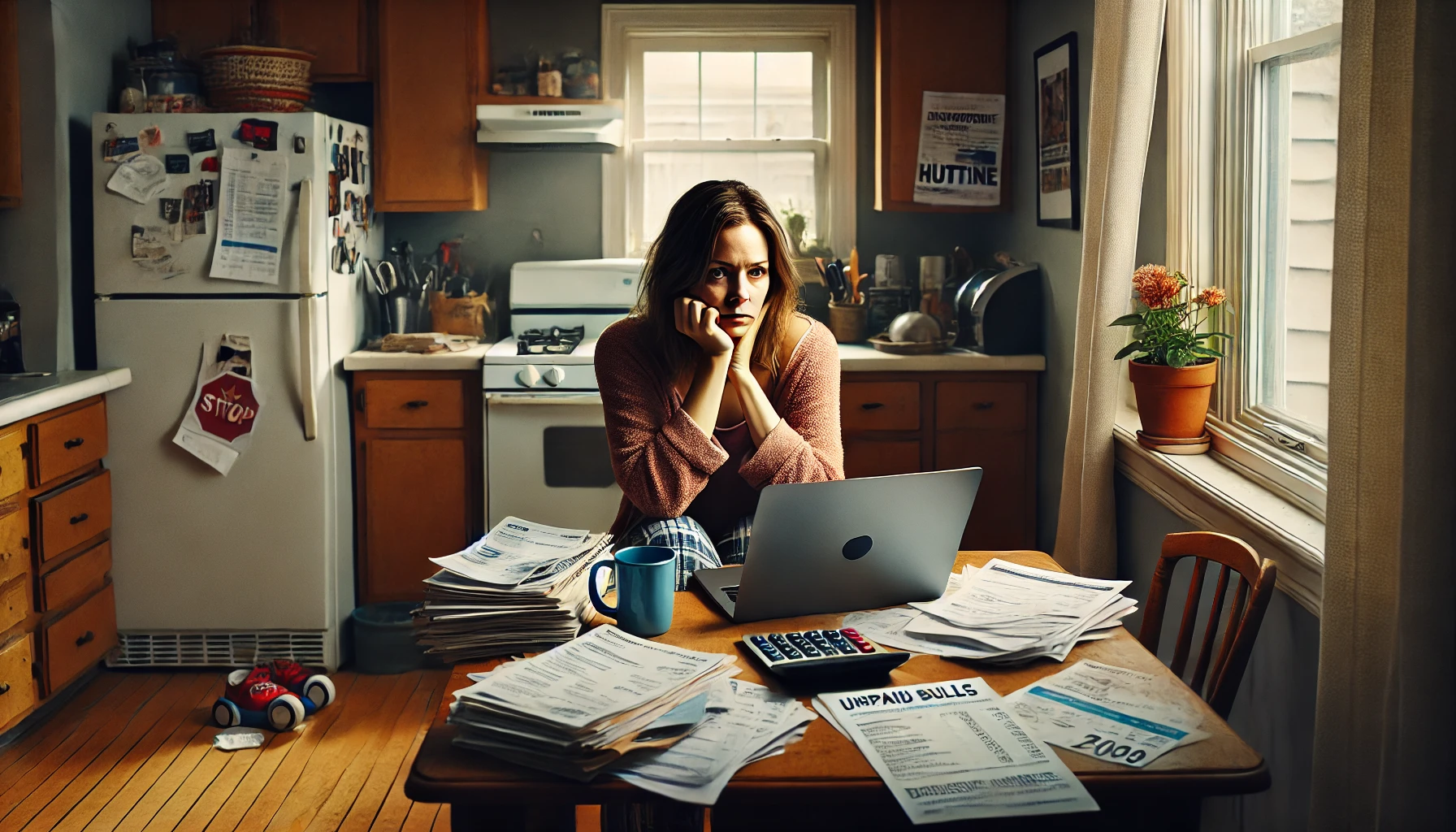Navigating Rental Plumbing Repairs in Canada
Did you know that plumbing issues are one of the most common concerns for both landlords and tenants in rental properties? With the responsibility for repairs often becoming a point of contention, it’s essential to understand who is responsible for maintaining and fixing plumbing problems in a rented home.
In Canada, the landlord-tenant legislation recognizes the rights of tenants to a home with adequate plumbing and sanitary facilities. Before the start of the tenancy, it is the landlord’s duty to ensure that the plumbing is in proper working condition and to carry out necessary maintenance. However, tenants also have their share of responsibilities when it comes to the proper use and reporting of plumbing issues.
In this article, we will explore the responsibilities of both landlords and tenants, their rights, and how to handle different situations related to rental plumbing repairs. By understanding these crucial aspects, you can maintain a harmonious landlord-tenant relationship and ensure the proper functioning of the plumbing systems.
Key Takeaways:
- The landlord is responsible for ensuring the plumbing is in proper working condition before the tenancy begins.
- Tenants have the responsibility to use the plumbing properly and report issues promptly.
- Landlords have the right to expect tenants to use the plumbing responsibly and inform them of any problems.
- Tenants have the right to a home with functional plumbing and prompt responses to plumbing-related complaints.
- Both landlords and tenants should fulfill their obligations to maintain a safe and habitable rental property.
Landlord’s Responsibilities for Plumbing Repairs
As a landlord, it is your responsibility to ensure that the plumbing in your rental property is well-maintained and in good working condition. By fulfilling these responsibilities, you can provide a safe and habitable living space for your tenants. Here are some key obligations you have as a landlord when it comes to plumbing repairs:
1. Pre-Tenancy Plumbing Check
Before a tenant moves in, it is crucial to conduct a thorough plumbing check to identify any existing issues. Inspect the pipes, faucets, toilets, and drains for any leaks, corrosion, or blockages. Fixing these problems beforehand will prevent inconvenience to your tenants and potential damage to the property. Remember, a reliable plumbing system is an essential aspect of a comfortable home.
2. Maintenance and Regular Inspections
Throughout the tenancy, it is your duty to maintain the plumbing systems and address any repair or maintenance needs promptly. Regular inspections can help you identify minor problems before they escalate into major issues. By taking a proactive approach to plumbing maintenance, you can save time, money, and prevent significant disruptions for your tenants.
3. Timely Response to Plumbing Emergencies
Plumbing emergencies such as burst pipes or overflowing toilets can happen unexpectedly. It is crucial that you respond promptly to these emergencies to minimize the damage and ensure the livability of the rental property. Your timely action can not only protect your investment but also enhance your relationship with your tenants.
4. Right to Expect Proper Use of Plumbing
As a landlord, you have the right to expect your tenants to use the plumbing properly. This includes avoiding behaviors that may cause damage, such as flushing non-biodegradable items or pouring grease down the drains. By setting clear expectations and communicating the proper use of plumbing to your tenants, you can prevent avoidable issues and maintain the integrity of the plumbing systems.
Remember, fulfilling your responsibilities as a landlord regarding plumbing repairs is crucial for creating a harmonious landlord-tenant relationship. By providing a well-maintained plumbing system, you can ensure the comfort and satisfaction of your tenants throughout their tenancy.
Tenant’s Responsibilities for Plumbing Maintenance
Tenants also have responsibilities when it comes to plumbing maintenance in a rental property. It is essential for tenants to understand and fulfill these responsibilities, as they play a crucial role in maintaining a good landlord-tenant relationship and ensuring the proper functioning of the plumbing systems.
One key responsibility of tenants is to use the plumbing properly. This means refraining from engaging in any activities that could damage the plumbing, such as flushing non-biodegradable items down the toilet or letting hair clog the drains. By using the plumbing responsibly, tenants can prevent unnecessary plumbing issues and maintain the overall functionality of the system.
Tenants should also promptly report any plumbing problems to the landlord. Whether it’s a leaky faucet, a blocked drain, or a running toilet, it is important to inform the landlord as soon as these issues arise. Reporting problems promptly allows the landlord to address them in a timely manner, preventing further damage and inconvenience.
In the event of a plumbing emergency, tenants should take necessary steps to limit the extent of the damage before the landlord arrives to fix the problem. This may involve shutting off the water supply or using temporary fixes to prevent water damage. By taking proactive measures during emergencies, tenants can help minimize the impact of the plumbing issue.
Tenant’s Responsibilities for Plumbing Maintenance:
- Use the plumbing properly, avoiding actions that could damage the system
- Promptly report any plumbing problems to the landlord
- Take necessary steps to limit the extent of damage during plumbing emergencies
Understanding and fulfilling tenant responsibilities for plumbing maintenance is essential for a harmonious living environment and the longevity of the rental property’s plumbing systems. By working together with landlords and taking proactive measures, tenants can contribute to the overall care and maintenance of the plumbing in their rental homes.
Landlord’s Rights Regarding Plumbing Use
While landlords have responsibilities for maintaining the plumbing in rental properties, they also have certain rights protected by the law. As a landlord, I understand the importance of these rights in ensuring the proper use and maintenance of the property’s plumbing.
Tenant Responsibilities
Tenants have a responsibility to use the plumbing systems properly and refrain from engaging in any activities that may cause damage. This includes not flushing non-biodegradable items down the toilet, avoiding excessive hair or grease buildup in drains, and promptly reporting any plumbing issues that arise.
In order to protect my rental property, I expect my tenants to fulfill their responsibilities and inform me when problems occur. By promptly and accurately reporting issues, tenants help prevent further damage and allow me to address plumbing repairs in a timely manner.
Notification of Plumbing Damage
Another important aspect of landlord rights regarding plumbing use is the tenant’s duty to notify me of any plumbing damage they may have caused. This ensures that I am aware of the situation and can take appropriate action to repair the damage and prevent further issues.
By being aware of the condition of the plumbing systems in my rental property, I can protect my investment and provide a safe and comfortable living environment for my tenants. Maintaining open communication with tenants and establishing clear expectations regarding proper use of the plumbing systems helps foster a positive landlord-tenant relationship.
Overall, understanding and exercising landlord rights regarding plumbing use are crucial in maintaining the integrity of the rental property. By working together with tenants, I can ensure that the plumbing is used properly and any necessary repairs are addressed promptly. This benefits both parties and contributes to a harmonious rental experience.
Tenant’s Rights Regarding Plumbing Repairs
Tenants in Canada have certain rights when it comes to plumbing repairs in rental properties. These rights aim to ensure that tenants have a safe and habitable living environment, with working plumbing systems. It is important for tenants to be aware of these rights and understand the actions they can take if plumbing issues arise.
First and foremost, tenants have the right to a home with adequate and functioning plumbing systems. This means that the plumbing should be in proper working condition, free of leaks, blockages, or any other issues that may compromise its functionality. If tenants encounter plumbing problems, such as a broken faucet, clogged drain, or toilet malfunction, they have the right to prompt attention and adequate repairs from the landlord.
In cases where the landlord fails to address plumbing issues in a timely manner, tenants have recourse options available to them. One option is to withhold rent until the repairs are completed. However, it is important for tenants to check their provincial tenancy laws as there may be specific guidelines on how much rent can be withheld and under what circumstances. Another option is to take legal action against the landlord by filing a complaint with the relevant housing authority or suing the landlord for breach of the lease agreement. In some cases, tenants may even have the right to terminate the tenancy without giving proper notice if the plumbing issues persist and render the rental property uninhabitable.
It is crucial for tenants to effectively communicate with the landlord regarding any plumbing issues that may arise. Tenants should promptly report the problem to the landlord in writing, providing clear details about the issue and requesting repairs. Keeping a record of all communication and documenting any damages caused by the plumbing problem will strengthen the tenant’s case if further action is necessary.
Overall, tenants have rights when it comes to plumbing repairs in their rental properties. By understanding these rights and taking appropriate action, tenants can ensure a safe and comfortable living environment. It is advisable for tenants to familiarize themselves with their provincial tenancy laws and seek legal advice if needed to protect their rights and interests.
| Tenant’s Rights Regarding Plumbing Repairs |
|---|
| Tenants have the right to a home with adequate and functioning plumbing systems. |
| Tenants have the right to prompt and adequate response to plumbing-related complaints. |
| Tenants can withhold rent, sue the landlord, or terminate the tenancy without notice if the landlord fails to address plumbing issues in a timely manner. |
| Tenants should effectively communicate with the landlord and document all communication and damages caused by plumbing issues. |
Responsibilities Before the Tenancy Begins
Before a tenant signs a lease agreement, it is my responsibility as a landlord to ensure that the rental property meets all health, safety, and building standards, including the plumbing.
I conduct a thorough property check to identify any existing plumbing leaks, corrosion, or other issues. I make sure that the plumbing is in proper working condition and free of any obstructions or malfunctions. Fulfilling these responsibilities before the tenancy begins is essential to provide a habitable and safe rental property for the tenant.
Before the tenancy begins, it is crucial for me to prioritize the maintenance and proper functioning of the plumbing systems in the rental property to ensure the tenant’s comfort and satisfaction.
Handling Plumbing Emergencies
Plumbing emergencies can happen unexpectedly in a rental property and require immediate attention. As a landlord, it is my responsibility to respond promptly and effectively to these emergencies to ensure the safety and livability of your home. Examples of plumbing emergencies include burst pipes, severe leaks, or overflowing toilets that can cause extensive damage if not addressed quickly.
If you encounter a plumbing emergency, it is crucial that you inform me immediately. You can reach out to me through phone or email, whichever is more convenient for you. By reporting the issue promptly, we can take immediate action to minimize the damage and prevent further complications.
In the event of a plumbing emergency, there are a few steps you can take to limit the extent of the damage while waiting for assistance:
- Shut off the main water supply: Locate the main shut-off valve in your rental property and turn it off to stop the flow of water. This can help prevent flooding and additional damage.
- Clear the affected area: Move any valuable items or furniture out of the way to protect them from water damage. You can also place towels or buckets to catch the water and prevent it from spreading.
As a landlord, I am authorized to access the property in emergency situations without prior notice. This allows me to quickly address the plumbing emergency and take the necessary steps to repair the issue.
If, for any reason, I fail to address the plumbing emergency promptly, I understand the inconvenience it may cause. In such cases, you have the right to seek assistance from the local housing authority or consider legal actions to resolve the problem.
Remember, your safety and well-being are my top priorities. By working together and communicating effectively, we can ensure that plumbing emergencies in your rental property are handled efficiently and with the least amount of disruption.
Dealing with Non-Emergency Repairs
Non-emergency plumbing repairs can arise in rental properties, requiring attention and timely resolution. These repairs may include issues such as leaking toilets or blocked drains, which can disrupt daily routines and lead to further damage if left unaddressed. In such cases, tenants hold the responsibility of promptly reporting the problems to their landlords and taking necessary actions to mitigate any potential escalation.
Landlords play a crucial role in non-emergency repairs by responding to tenant’s repair requests in a timely manner. While the urgency may not be as high as in emergency situations, landlords should prioritize addressing these concerns to maintain the habitability and comfort of the rental property. Open communication and collaboration between tenants and landlords are essential in resolving these issues efficiently.
To ensure effective resolution, tenants should familiarize themselves with the clauses in their rental agreements that outline their responsibilities regarding minor repairs and maintenance. Clear communication with the landlord regarding non-emergency repair needs will facilitate a smoother repair process. By working together, tenants and landlords can maintain a positive landlord-tenant relationship and keep the plumbing systems in optimal working condition.
Source Links
- https://settlement.org/ontario/housing/rent-a-home/tenant-rights-and-responsibilities/what-can-i-do-if-the-place-i-rent-needs-repairs/
- https://familyplumbing.ca/plumbing-maintenance-and-repair-in-your-rental-property-whos-responsible-for-what/
- https://rcpmsolutions.ca/plumbing-maintenance-and-repair/
- Investing Wisely: How Windows & Doors in Boost Property Value and Financial Health - April 24, 2025
- The Financial Impact of Personal Injuries: Why Legal Help Matters for Business Owners - April 16, 2025
- The Hidden Financial Costs of Domestic Assault: What Business Owners Need to Know - April 16, 2025













